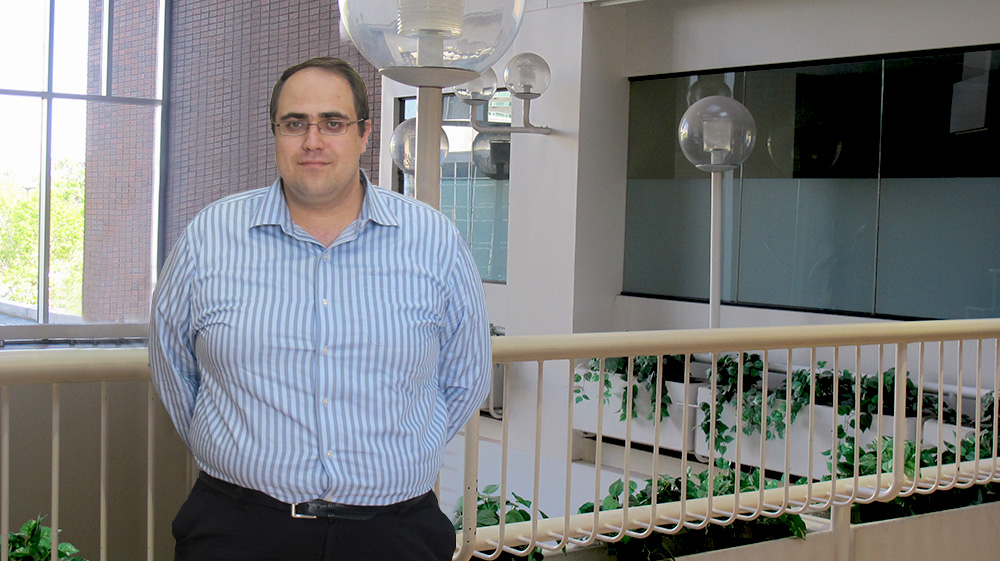
Matthew Benesch
Matthew Benesch is driven by cancer: to understand it and to improve treatment for the estimated 196,000 Canadians who, according to the Canadian Cancer Society, will receive a cancer diagnosis in 2015.
Not only has this drive led Benesch to the leading edge of cancer research, but also it has led him to the top of his class. On June 5, he will accept a PhD in biochemistry and the Governor General's Gold Medal, a University of Alberta award that celebrates graduate-level academic excellence.
"Not only was he exceptionally productive, but the value of his research and contribution to the area of understanding the development of breast and thyroid cancer has been groundbreaking," says David Brindley, one Benesch's supervisors.
Working under the joint supervision of Brindley in the Department of Biochemistry and Todd McMullen in the Department of Surgery, Benesch tested a novel inhibitor on an enzyme, called autotaxin, in breast and thyroid cancer models. Autotaxin is secreted when healthy tissue is damaged, but its production is increased in cancer cells and tumours. Further, "the product that [autotaxin] creates is known to drive cancer progression and therapy resistance," Benesch explains.
Benesch discovered that, unlike thyroid cancer cells, breast cancer cells do not secrete autotaxin; production is increased in surrounding healthy tissue in response to inflammation caused by the tumour. The inhibitor Benesh worked with has anti-inflammatory properties that caused a reduction in enzyme production in both cancer models, resulting in an increase in tumours' sensitivity to chemotherapy-particularly to doxorubicin, which is a common first line of treatment in many cancers.
"By blocking autotaxin, not only do you deprive the cancer of a potent growth signal, you also cut back the inflammation in the surrounding tissue," Benesch says. "We investigated those [cancer models] primarily because they represent two opposite ends of the spectrum. Whereas other researchers have shown autotaxin to be important in neuroblastomas, melanomas, ovarian and colon cancers, we've shown the extremes of behaviour on the cancer spectrum. Those all fall within it."
Although the Governor General's Gold Medal is the most recent, Benesch has been collecting accolades for his work for several years. He has accepted Alberta Innovates - Health Solutions (AIHS) and Canadian Institutes of Health Research (CIHR) MD/PhD studentships, a Vanier Scholarship in 2011, a Dorothy J Killam Memorial Graduate Prize in 2013 and he was named a Leader of Tomorrow by the Alberta Science and Technology Foundation in 2014.
The results of this research are so promising that the group has begun negotiation for phase one clinical trials. They are also interested in investigating the inhibitor's anti-inflammatory application potential by testing how it interacts with other chronic inflammatory diseases, such as rheumatoid arthritis and hepatitis.
"Most students won't work on something that is a year or two away from going to the clinic," Brindley notes. "He was ideally placed to translate his work."
Although he would like to take part in the next stages, Benesch may have other time commitments: in the fall, he will begin his third year of medical school. MD/PhD students like Benesch take a hiatus between second and third year to complete a PhD program of their choice. Though he still has two years of medicine ahead of him, Benesch believes he will pursue a career in surgical oncology.
"[My PhD is helping me] to question the existing paradigms, where else things can be done differently and to formulate ideas to make patient treatment a little better," he says. "There is potential for future research down the road and integrate that into practice once I get past residency."